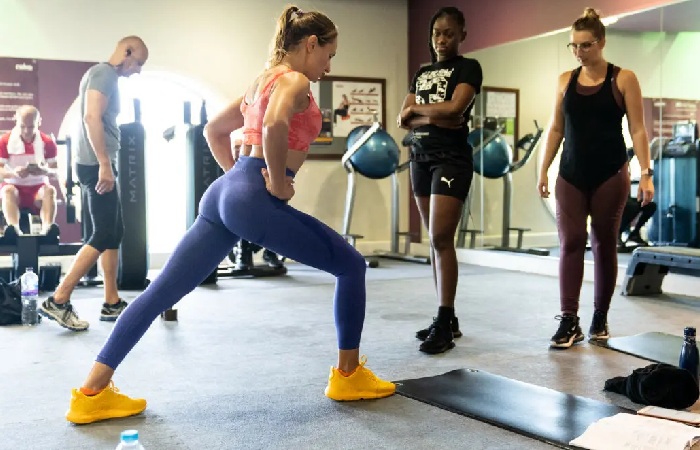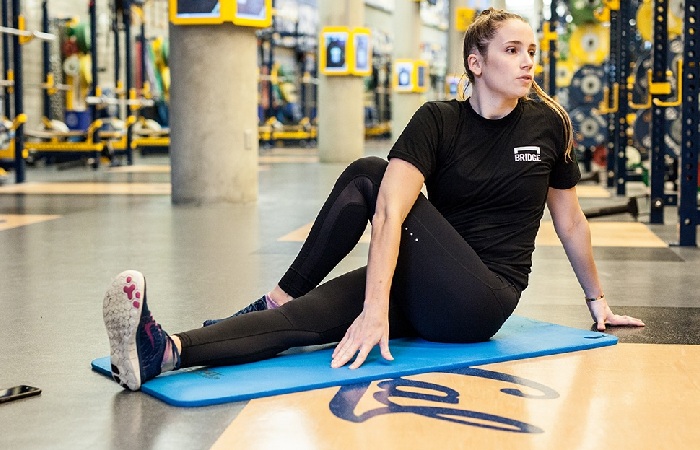Table of Contents
Introduction
How To Improve Exercise Performance – There’s maybe more misinformation on the subject of hydration than any other aspect of fueling. It is terrible because overhydration presents any fueling issue’s most severe physiological consequences. Acute overhydration can cause hyponatremia-induced coma and casualty.
Most athletes, in main conditions, will satisfy hydration wants with a fluid intake in the 550-800 ml/hr range. Cool-weather exercise might require only a little over half of that big athlete, very hot and humid conditions it may be up to 900 ml. You canister sweat more than that, but you cannot physiologically restore it ounce-for-ounce. Usual fluid drinking close to or over a litre hourly increases the potential for serious performance and health problems. Keep that in mind before you arbitrarily gulp excessive amounts of fluid.
If you supersede your internal mechanisms, you’ll find out how your body deals with surplus water intake during intense exercise. If you enjoy nausea, bloating, and DNFs, forget suggestions like “drink to restore ” or “drink even when you’re not thirsty” it’s simply wrong.
Restrict Caloric Eating to 300 cal/hr During the Workout

If you desire to look at your race go down the drain fast, follow the “calories out, calories in” protocol that some “experts” suggest. Fact: your body can’t course caloric intake anywhere near your expenditure rate. Athletes who try to replace all the fuel they lose upwards of 700-900 calories per hour will likely end up with bloating, nausea, vomiting, and diarrhoea. Sound like a good strategy to you? We didn’t think so.
To achieve your best routine, replenish calories in “body cooperative” amounts, allowing your fat stores to make the dissimilarity, which they will do. Mainly athletes, 240-300 cal/hr will do the job. For lighter athletes, 180-200 cal/hr might be the ticket, while more prominent athletes can consider slightly over 300 cal/hr hourly intakes.
Far too many athletes think they must match calories out with equal amounts of calories. They’re usually on the side of the road or off the back, waiting for their stomach to stop rebelling. If you follow a more moderate caloric intake, you’ll be blowing by them, not joining them.
Exercise Over Two Hours Requires Protein, Too.
How To Improve Exercise Performance – Carbs alone won’t satisfy all your energy requirements once you beat two hours or so. Protein will have to help roughly 10% of your energy supplies. You have two choices:
Use Soy, Not Whey, During Exercise.
Whey protein is superb when it’s used at the right time: after exercise. Please do not use it by or during since the added glutamine rapidly degrades to produce ammonia. Ammonia build-up is a primary cause of muscle fatigue, and you already have ammonia when you work out. Don’t make it inferior. Soy or rice gives you the protein required with nominal spare ammonia production. After work, when ammonia production is not an issue, glutamine-enhanced whey protein is excellent for resistant system boosting, rebuilding muscle tissue, and improving glycogen synthesis.
Remember to Replenish Electrolytes During Exercise

You can get your energy fuels dialled on the right, but if you neglect the electrolytes, the dash light comes on but your body doesn’t have a dash light. Instead, you get cramps, spasms, strength revolt, irregular and rapid heartbeat, and significant bonk. Don’t wait for the glow to come on; those are the final symptom of increasing injury. If you don’t respond well to your body’s oil light, you can kiss optimal performance, and probably the whole race, good bye.
Don’t Rely on Salt Medicine to Fulfil Electrolyte Supplies.
People think sweat = significant salt loss, but that isn’t very clear where it counts in your replacement program. Salt is one of the electrolytes you need to replenish during a workout. Calcium, magnesium, and potassium are critical in fulfilling electrolyte requirements.
The bad news with salt is that it is too easy to overload: excess salt consumption causes oedema and impairs your standard body mechanism for electrolytes. That’s why throwing downward salt tablets is a bad idea; you must use caution if you decide to use them.
How greatly salt is enough? Electrolyte reduction is widely variable if you can’t rely on a “one-size-fits-all” bottled drink or drink mix. You must experiment and find your range for any weather condition and exercise duration. That said, 200-400mg NaCl/hr, as part of an entire range of electrolyte replenishment produced, is an excellent early point for most athletes.
Conclusion
How To Improve Exercise Performance – live life healthily; exercise is essential for mental and physical development. Thus, training is vital for the overall growth of a person. It is necessary to maintain a balance between work, rest and activities. So, make sure to exercise daily.
Related posts
Featured Posts
Exercises to Have the Best Six-Pack in Summer
Introduction Marking the abdomen area is the goal of true fitness lovers. And, is that this summer you can teach…
French Pedicure – How to Get French Pedicure Nails?
French Pedicure French Pedicure – Thanks to the latest beauty services, a modern woman can afford a classically monochromatic color…


